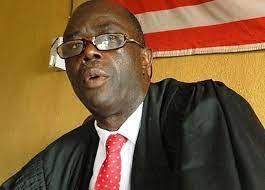Leveraging the Youthful Leaders for National Unity and Development in Liberia

By: Austin S Fallah – A True Son of Liberia:
The Republic of Liberia stands at a crossroads in its national affairs, where the push for unity, development, and the eradication of corruption must be at the forefront of its political endeavors.
With a youthful population eager for change and representation, the government’s decision to incorporate young leaders into its highest ranks is not merely a token gesture but a strategic move with immense potential.
Vice President Jeremiah Kpan Koung, Speaker Jonathan Fonati Kofa, and President Pro-Tempore Yonblee Kangar Lawrence represent a generation of leaders whose experiences and tenacity resonate deeply with the youth and the nation at large.
The imperative argument here is clear.
The Liberian government must harness the unique position, vigor, and relatability of these young officials to advance unity among all age groups and stimulate social and economic development.
Making the Case for Unity Through Young Leaders:
The promotion of national unity in Liberia requires more than just political platitudes.
It demands a genuine connection between the government and its citizenry.
The youth, comprising a significant portion of the population, hold substantial sway over the current and future landscape of Liberia.
As young leaders who have navigated the challenges of Liberia’s recent history, Vice President Koung, Speaker Kofa, and President Pro-Tempore Lawrence embody the spirit of resilience and progress.
Their political ascendancy provides an opportunity to bridge generational divides, instilling a renewed sense of nationhood that transcends age and background.
Their youthfulness injects a dose of relatability that has often been missing in political discourse.
Young Liberians see their experiences and struggles reflected in the stories of these leaders who have endured similar hardships and have emerged as influential figures in the nation’s governance.
By leveraging these commonalities, the government can build a more cohesive national identity where the youth proudly contribute to the collective vision for Liberia’s future.
Corruption, Accountability, and the Role of Youthful Leaders:
The scourge of corruption has long impeded Liberia’s progress, eroding the public’s trust in government institutions.
Yet, the integration of young leaders offers an innovative approach to combatting this pervasive issue.
With their legacies and the expectations of their peers at stake, Vice President Koung, Speaker Kofa, and President Pro-Tempore Lawrence can be presumed to carry an intrinsic motivation to operate transparently and responsively.
The argument here is based on the premise that young officials, linked by shared generational goals and the looming liability of disenchanting their youthful constituents, might hold themselves and their colleagues to higher standards of integrity.
They would be keenly aware that their actions if marred by corruption, can frustrate their generation’s aspirations and those to follow.
The government can use this visible vulnerability to public scrutiny as a formidable deterrent against corrupt practices, thus fostering a culture of accountability within its ranks.
Making the case for Advocating for Youthful and National Development:
The lived experiences of these young leaders are not just symbols of survivance but also a reservoir of knowledge that can be channeled to advance developmental agendas aligned with the expectations of the youth.
Vice President Koung, Speaker Kofa, and President Pro-Tempore Lawrence, having personally overcome obstacles faced by younger Liberians, are well-positioned to advocate for policies that are attuned to their generation’s needs.
Education, employment, and entrepreneurship are key areas of focus for any nation’s growth. They are particularly crucial in a post-conflict society still grappling with the remnants of its turbulent past.
These young leaders can act as ambassadors for youth engagement, encouraging their involvement in these sectors and helping to shape policies that incentivize innovation, skill development, and job creation.
Furthermore, their advocacy can stimulate local and international investment in Liberia’s youth, thus producing a ripple effect that benefits the larger economy.
The distinctive mix of their professional expertise and youthful perspective is pivotal in designing and implementing programs that resonate with the demographic they represent.
Their credibility can serve as a rallying point for young Liberians, galvanizing them toward entrepreneurship, volunteerism, civic participation, and collective action, which are essential ingredients for sustainable national development.
Ultimately, Liberia must utilize youthful leaders such as Vice President Jeremiah Kpan Koung, Speaker Jonathan Fonati Kofa, and President Pro-Tempore Yonblee Kangar Lawrence to promote unity, combat corruption, and advance development.
These individuals, emblematic of the fortitude and ambition inherent in Liberia’s youngest generations, have the potential to align the nation’s trajectory with its people’s aspirations.
Through its authoritative voices and influential roles, the Liberian government can instill a sense of shared purpose and drive the societal transformation necessary for the country’s prosperity.
The government must ensure these young leaders are empowered, supported, and held accountable to achieve this.
It must also strive to create an environment that encourages active participation from citizens of all ages, where dialogue flourishes and differing viewpoints catalyze constructive progress.
By doing so, Liberia can move beyond the vestiges of its divided past, forging ahead as a unified, resilient, and progressive nation under the guiding influence of its youthful guardians.

















